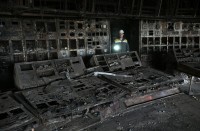by Ivan Couronne
WASHINGTON, United States (AFP) — Accused of failing to uphold their civic duty, younger Americans are behind the current COVID-19 surge, with several states moving to close bars, beaches and other places that saw huge crowds when lockdowns were eased.
The median age for new cases in Florida in the past few days has fluctuated between 34 and 36. In Los Angeles, 40 percent of new cases are among those under 40. And in the greater Phoenix area, the major center of the contagion in Arizona, half are under the age of 35.
In total, half or more of all the cases in California and Arizona since the start of the pandemic have been among the 18-49 age group, and the rate is expected to rise.
This in turn has fueled innumerable calls for individual responsibility from mayors, governors and federal officials in recent days.
“We issue a particular plea to young people,” Vice President Mike Pence said Wednesday, urging the use of masks. “This is about protecting our most vulnerable.”
Bars have been shut once more in Texas, California and parts of Michigan. In Florida, they can’t serve alcohol anymore.
In Texas, the governor has also banned “tubing” — floating down a river in the inner tube of a tire. Thousands of the state’s youths were going tubing, often in large groups, prior to the ban.
Trump isolated
President Donald Trump continues to minimize new records in confirmed cases (more than 50,000 were reported Wednesday, another single-day record). On Thursday, he said the US remained prepared and was the “king of ventilators.”
But he is increasingly isolated in this position. Those under him appear to be taking the situation more seriously, and voicing their concerns.
The Department of Health and Human Services has announced a “blitz” in testing in hotspots in Texas, Florida and Louisiana, specifically in order to detect cases among those younger than 35.
“When you have a lot of younger people who are asymptomatic, particularly in an outbreak situation, it is much harder, not impossible, but much harder to contact trace,” said Brett Giroir, the official in charge of coordinating the national testing strategy.
Just a few days ago, Pence made reassuring remarks that hotspots were limited geographically and young people were those most affected, meaning the number of severe cases were likely to be low.
But “it just doesn’t make sense to say, we’ll just keep it out of the nursing homes,” Harvard epidemiologist Marc Lipsitch told reporters Wednesday.
“That has not worked so far,” he added, evoking the tragic experience of the country’s northeast over the spring.
Will the increasingly strong warnings from authorities be heeded? Experts stress that the changes in behavior required are simple: frequent hand-washing, avoiding crowds, and covering your face when physical distancing isn’t possible.
Anthony Fauci, the country’s top infectious diseases official, warned this week that on the current track the US could start registering more than 100,000 new cases per day.
He thundered against bars and beaches filled with young people mixing freely without face coverings.
“So they have an understandable attitude, which is unfortunate but understandable, ‘If I get infected, what do I care, but it’s likely I’m not even going to get sick,'” he told BBC Radio 4 on Thursday.
This is true, but that doesn’t mean the infection won’t get passed on, he said.
“We need to engender some societal responsibility in people, particularly the younger people,” he added.
Given the known delay between having a confirmed infection, hospitalization and death, the coming weeks will show whether the country is listening.
© Agence France-Presse






